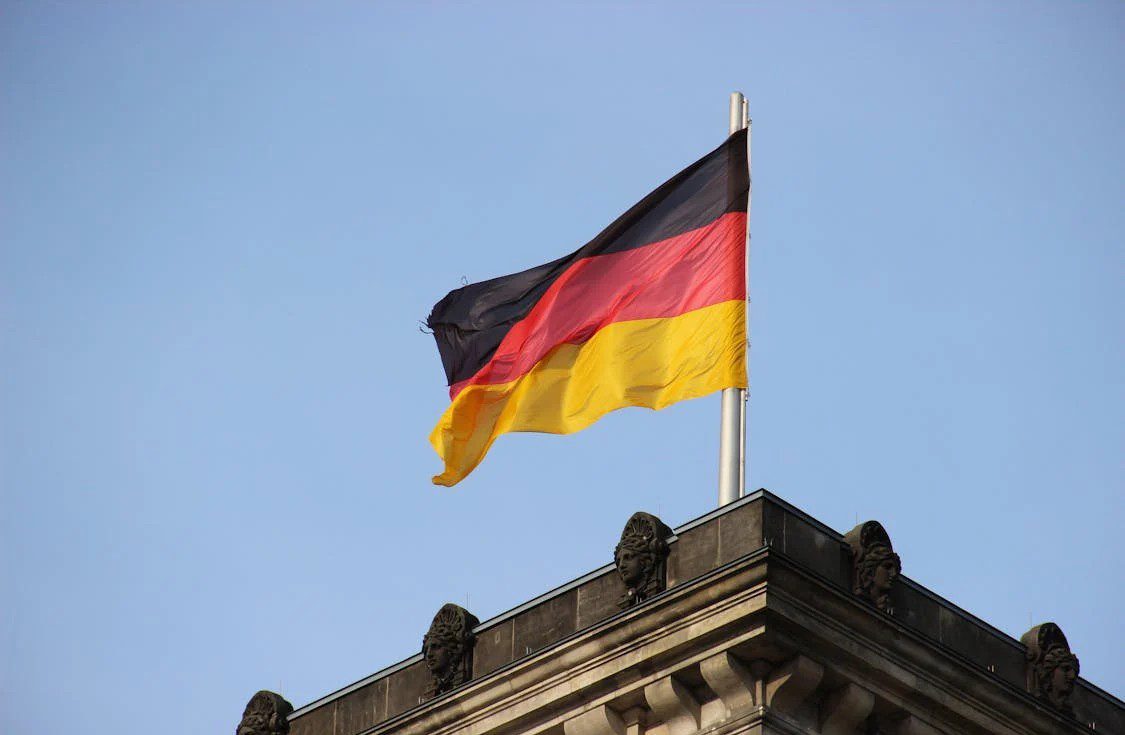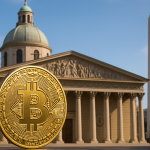German authorities are intensifying their efforts to incorporate blockchain technology and Bitcoin into the nation’s financial framework. During a recent Blockchain Roundtable, organized by the Fraktion der Freien Demokraten and Frank Schäffler, lawmakers and experts deliberated on several significant proposals aimed at enhancing the government’s approach to these technologies.
The discussion held in the German Parliament saw attendance from influential policymakers, including Christian Lindner, the former Finance Minister, and Patrick Hansen, an executive from Circle.

Christian Lindner’s Recommendations for Advancing Bitcoin in Germany
Blockchain Roundtable in the German Parliament
Former Finance Minister @c_lindner outlined three possible steps for Germany/EU to enhance its competitiveness in this arena:
1️⃣ Issue government bonds utilizing blockchain technology
2️⃣ Revive discussions on establishing a strategic #Bitcoin reserve
3️⃣ … pic.twitter.com/awRpYrf2bI— Patrick Hansen (@paddi_hansen) January 10, 2025
Lindner suggested three strategies for enhancing Germany’s position in the blockchain sector. Firstly, the government could issue bonds on the blockchain. Secondly, it should initiate discussions about creating a Bitcoin reserve similar to initiatives in other nations. Thirdly, introducing Bitcoin ETFs into the EU market, which currently only permits ETCs/ETNs, would provide a regulated investment pathway for retail investors, thereby promoting blockchain adoption in the region.
Germany’s Bitcoin Holdings and Market Reactions
In a noteworthy incident, the German government controlled a significant stash of 50,000 Bitcoins last year. In January 2024, these Bitcoins were confiscated from the site Movie.2k.com, known for distributing pirated films. The government proceeded to sell these Bitcoins at a price of $53,000 each between June 19 and July 12 of last year, yielding over $2.8 billion in revenue.
However, this outcome left many dissatisfied as Bitcoin’s value soared shortly after the sales. Within weeks, Bitcoin’s price increased to $88,000, eventually surpassing $100,000 after the US elected Donald Trump for his second term. Market experts noted that Bitcoin’s rapid rise emphasized the need for an effective Bitcoin policy in Germany.
Germany’s Renewed Focus on Bitcoin
With Bitcoin prices now exceeding $90,000 and the return of a Bitcoin-friendly administration in the US, many analysts and commentators predict a positive outlook for the blockchain and digital assets sector. German decision-makers are re-engaging with the conversation around a Bitcoin initiative. Lindner, for instance, addressed the Bundestag last December, acknowledging the nation’s “missed opportunity” regarding Bitcoin and indicated that the US is poised to advance its Bitcoin-related policies.
Image from Pexels, chart sourced from TradingView





